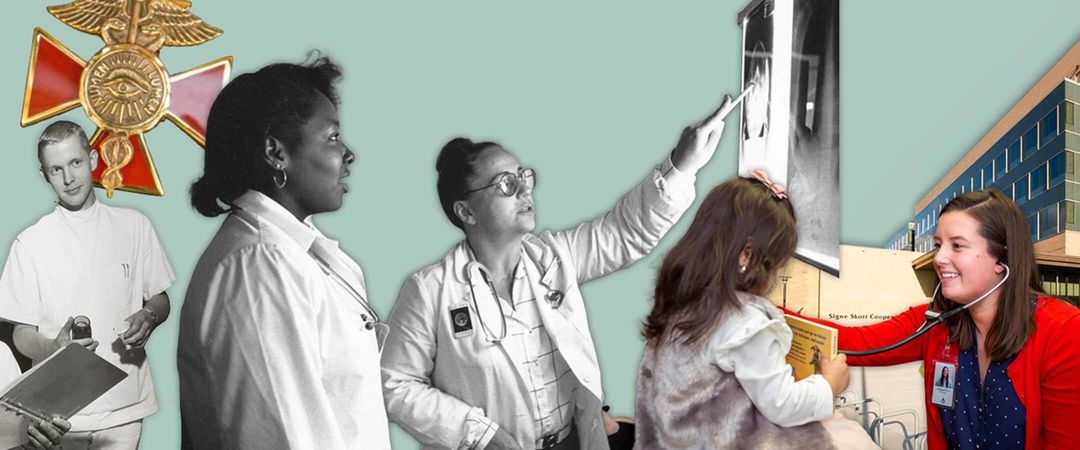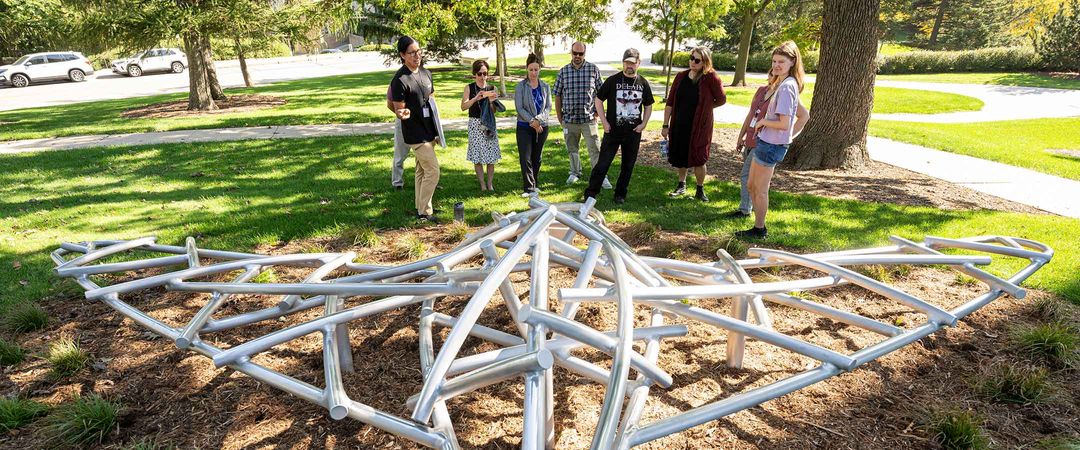Few Badgers have as much experience with COVID-19 as Nasia Safdar MS’02, PhD’09. As a physician and medical director of infection control at UW Hospital and Clinics, she has treated COVID patients, including as part of the team that treated the first case in Madison. As a professor in the School of Medicine and Public Health’s Division of Infectious Diseases, she teaches medical students how to treat viruses. And as the UW’s new associate dean for clinical trials, she oversees research into treatments and preventive measures.
In other words, when it comes to contagion, Safdar knows her stuff.
She was the first guest to appear on The UW Now when the program became a livestream in 2020, after COVID-19’s arrival, and she has appeared frequently since then. The December 21, 2021, program will be her fifth time on The UW Now, and she’ll address the virus’s omicron variant — what we know about this mutation, and what we’re still learning.
Chief Area of Research:
Infectious diseases: Safdar was already an MD when she arrived at the UW in 1997, and she earned a master’s in population health sciences and a doctorate in clinical research. “It's all really serendipity,” she says of the choice to attend UW–Madison. “When we were looking for training programs for internal medicine residencies, we had friends who were chief residents here, and they had lived here for about five years, really talked up the place a lot, had a great time living here. And when we visited, everybody was so warm and welcoming. It seemed like a no-brainer.”
On The UW Now, I’ll Discuss:
I’ll be talking about what the variations are in the structure of the virus, omicron compared to, say delta — what that might lead to in terms of the case counts and the syndrome of illness that we might see, and what the expected effect of the vaccine and boosters is on it. I think that what we’ll find is that omicron will spread. We have already seen that it’s spreading. It might overtake delta, or it might coexist with it, but it won’t be a bystander. I think it’s going to become important as the dominant variant.
One Thing I’d Like Viewers to Remember Is:
I think the good news is that the vaccines will still have effectiveness. The question is to figure out how much effectiveness. But even if it’s 10 percent less than what it is now, it will still be well worth it because those are highly effective vaccines. The syndrome so far appears to be relatively mild, but that’s still in predominantly vaccinated groups. How omicron behaves in unvaccinated people — I think it will still have the potential to cause severe disease there.
It’s not unexpected that we will see variants. This is omicron; it could be a different one tomorrow. That’s just the reality of how viruses evolve. We know what works against them. And vaccination still works for what is out there and is expected to work for what may come. So that’s really our best line of defense. Everything else is an adjunct.
To Get Smart Fast, Read:
The CDC MMWR, which is the [Centers for Disease Control] morbidity and mortality weekly report — it’s a medical publication, but nonetheless is an easier read than many of the other ones out there. It gives a nice synopsis of what we know and what we don’t know, and it always gets high marks for accuracy. [I read] medRxiv, which is the website where they post [medical studies before they have been printed]. Because omicron is so new and it takes a while for things to get into print, many of us will turn to pre-prints and interpret them with our own critical analysis.








